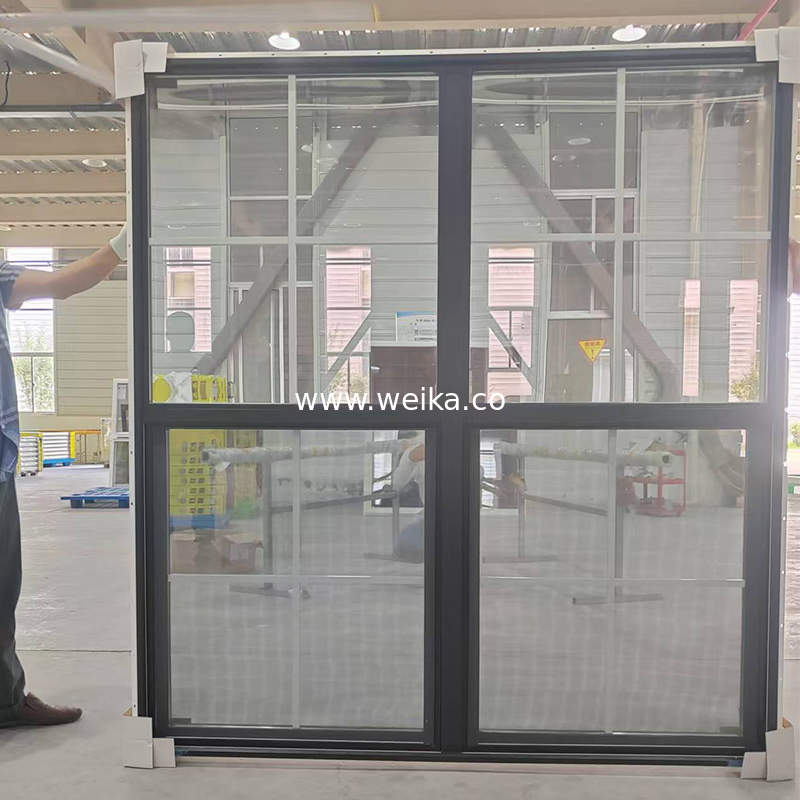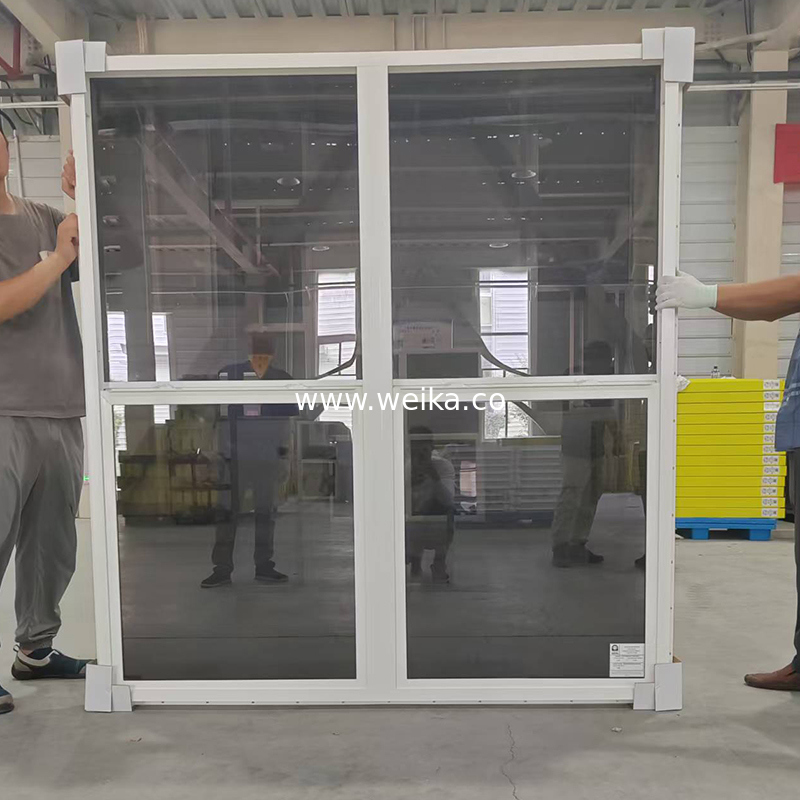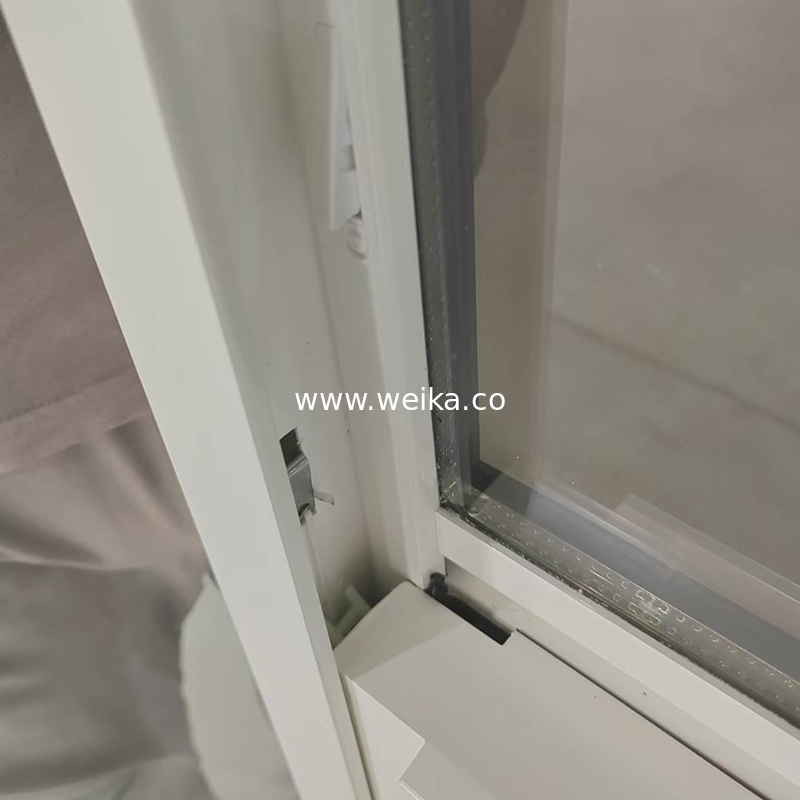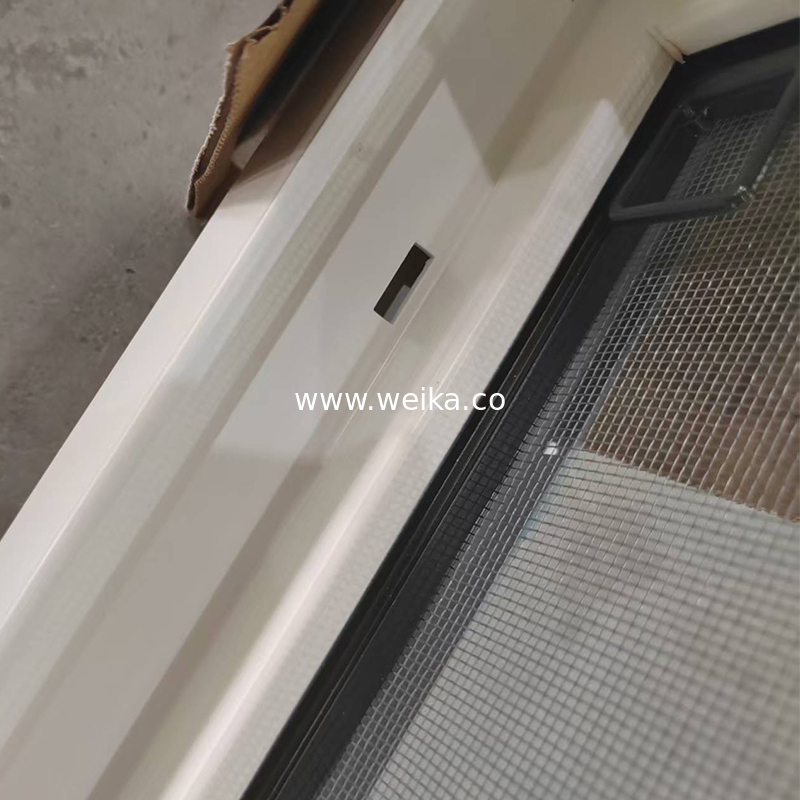Detalhes para Janela UPVC Hung
|
|
Perfil
|
Série
|
Séries comumente usadas:
62mm,64mm,78mm,82mm,85mm,87mm,105mm...
|
|
Espessura
|
1.4mm-1.8mm
|
|
Tratamento de Superfície
|
Perfis de extrusão
Perfis de co-extrusão de um lado/dois lados
Perfis revestidos de um lado/dois lados
Perfis de corpo inteiro
|
|
Cor
|
Personalizado (Comumente Branco/Preto/Damasco...)
|
|
Tipo
|
A. Janela e porta de correr
|
D. Janela e porta de batente
|
|
B. Janela e porta de abrir
|
E. Janela e porta dobrável
|
|
C. Janela Hung
|
F. Janela Tilt & Turn
|
|
Vidro
|
Tipo
|
Transparente / Temperado / Colorido / Baixo Emissivo / Fosco / Laminado
1. Vidro Simples
2. Vidro Duplo ou Triplo:
3+6+3/3+12+3/3+16+3/5+9+5/5+12+5/5+16+5 / Opção de tela e grades
3. Personalizado
|
|
Espessura
|
Espessura do Vidro: 3,4,5,6,8,10,12
Espessura Laminada: 0.76, 1.14,1.52
|
|
Ferragens
|
Marca: Marca da AlemanhaMarca da China
|
Equilíbrio + fechadura crescente + fita de vedação + tela
Equilíbrio + fechadura crescente + limitador + fita de vedação + trinco basculante + tela
|
|
Malha
|
Malha de segurança em aço inoxidávelTela mosquiteira de fibra de vidro
|
|
Embalagem
|
A. filme retrátil + canto de cartão
|
|
B. palete de madeira ou palete de aço design personalizado / tamanho personalizado disponível
|

Janelas Hung de Vinil vs. Alumínio: Escolhendo o Material Certo para Sua Casa
A escolha entre vinil (UPVC) e alumínio para suas janelas de correr ou de guilhotina
é mais do que apenas estética; impacta fundamentalmente o desempenho, a longevidade, a manutenção e
o custo. Ambos os materiais têm pontos fortes e fracos distintos, tornando-os adequados para diferentes
prioridades e climas. Vamos analisar as principais linhas de batalha:
1. Isolamento Térmico e Eficiência Energética: O Vencedor Claro é o Vinil
Altamente Durável: Resistente à podridão, corrosão e danos causados por insetos. Não empena, racha ou descasca em
Campeão Isolante: O vinil é um mau condutor de calor. Perfis multicâmaras (5, 6, 7+ câmaras)
prendem o ar, criando barreiras térmicas poderosas.
Ponte Térmica Mínima: A própria estrutura não transfere facilmente as temperaturas externas para dentro.
Resultado: Valores U significativamente mais baixos (medindo a perda de calor), levando a contas de aquecimento e resfriamento mais baixas,
conforto aprimorado e risco reduzido de condensação. Essencial para climas frios e casas com consciência energética.
Alumínio:
Extremamente Forte e Rígido: O alumínio é inerentemente mais forte que o vinil, tornando-o ideal para muito grandes
temperaturas externas para dentro no inverno e calor para dentro no verão.
Quebra Térmica Crucial: Para mitigar isso, janelas de alumínio de alta qualidade incorporam uma "quebra térmica"
– uma tira de plástico ou poliamida não condutora que separa as partes interna e externa da estrutura.
Isso reduz a condução, mas não a elimina.
Resultado: Mesmo com uma quebra térmica, as estruturas de alumínio geralmente têm valores U mais altos do que
estruturas de vinil multicâmaras comparáveis. Sem uma quebra térmica, o desempenho energético é ruim. Espere potencialmente
contas de energia mais altas e mais condensação.
2. Durabilidade e Manutenção: Diferentes Tipos de Resistência

Vinil (UPVC):
Altamente Durável: Resistente à podridão, corrosão e danos causados por insetos. Não empena, racha ou descasca em
condições normais.
Baixa Manutenção: Requer apenas limpeza ocasional com água e sabão. Nunca precisa de pintura, tingimento,
ou vedação. A cor é tipicamente consistente em todo o material (não apenas uma camada superficial).
Alumínio:
Extremamente Forte e Rígido: O alumínio é inerentemente mais forte que o vinil, tornando-o ideal para muito grandes
unidades de janela ou áreas com ventos fortes, onde a integridade estrutural máxima é fundamental. Menos propenso a
deflexão em grandes vãos.
Resistente à Corrosão: Resiste naturalmente à ferrugem, especialmente quando revestido a pó. Excelente desempenho
em ambientes costeiros/com ar salgado.
Manutenção Moderada: O acabamento com pintura eletrostática é durável, mas pode eventualmente lascar, arranhar ou desbotar
(embora os revestimentos modernos sejam muito resistentes). Áreas danificadas podem precisar de retoque. Geralmente requer
menos manutenção do que madeira, mas mais do que vinil.
Quando escolher Janelas Hung de Vinil:

A prioridade nº 1 é Eficiência Energética e Isolamento: Especialmente em climas frios ou mistos.
O orçamento é uma preocupação fundamental: Buscando o melhor valor.
Baixa manutenção é essencial: Não quer pintar ou realizar manutenção significativa.
Estética tradicional ou com aparência de madeira é preferida.
Boa durabilidade geral é suficiente para suas necessidades.
Quando escolher Janelas Hung de Alumínio (com Quebra Térmica):
Estética moderna e área máxima de vidro: Linhas de visão finas são críticas para o design.
Ambientes costeiros/com ar salgado: Resistência superior à corrosão.
Requer painéis de janela muito grandes: Resistência estrutural superior para vistas expansivas.
Cores vibrantes ou personalizadas específicas são desejadas.
Disposto a investir mais em design e resistência, e priorizar um bom isolamento (mas não de primeira linha).
Pese cuidadosamente seu clima, orçamento, metas de design e necessidades de desempenho. Investir em

instalação de qualidade é crucial, independentemente do material escolhido, para garantir o desempenho ideal
e longevidade.

 Por favor verifique seu email!
Por favor verifique seu email! Por favor verifique seu email!
Por favor verifique seu email!  Por favor verifique seu email!
Por favor verifique seu email! Por favor verifique seu email!
Por favor verifique seu email! 



